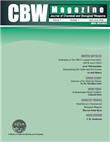Japan Beefs up its Naval Capability
To assuage fears, Japan might see merit to take India on board in the form of a naval cooperation framework to secure peace at sea. Developments in the past 4-5 years in India-Japan relations point towards that direction.
- Rajaram Panda
- January 05, 2010













